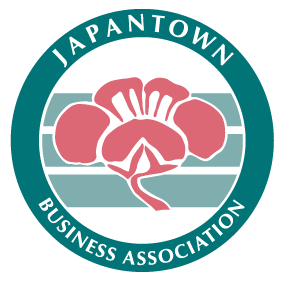San Jose Tofu Co. to close, ‘a gem, a landmark’ in Japantown
By JULIA PRODIS SULEK | jsulek@bayareanewsgroup.com | Bay Area News Group
> original article
SAN JOSE — After 71 years and three generations, San Jose Tofu Co. — one of the last shops that make the soft bricks of soybean cakes by hand — is closing at the end of the month.
Owner Chester Nozaki, whose grandfather opened the shop just after World War II on Jackson Street in Japantown, says the physical work of lugging 40-pound buckets of soybeans into grinders and vats has taken its toll on him and his wife, Amy.
“We’re just really tired. We’re physically just burned out,” Nozaki, 61, said Tuesday. “It’s just too much.”
San Jose Tofu has been a destination for generations of families who travel from across the Bay Area and beyond for the fresh taste and silky texture that is difficult to find these days even in Japan. Almost all tofu now is made by machine, which can produce up to 300 bricks an hour. The Nozakis make 42.
“It’s a real loss for San Jose on so many levels,” said Steve Yoshioka, 47, a regular customer who lives a block away. “It’s a gem, a landmark. You can’t find fresh tofu anywhere else.”
With a significant investment needed to upgrade equipment, plus the recent sale of the building, the couple decided a month ago to close on Dec. 30. By Tuesday afternoon, they still hadn’t told Nozaki’s father, Takeshi, who is 85 and took over the business from his father when he was 17. Nozaki said his father was so devoted to the store, which opened in 1946, that Nozaki had to force him to retire at 70.
“I just don’t have the heart to tell him,” Nozaki said. “I’d feel I was letting him down.”
Even Amy Nozaki got choked up as she shared the news with customers Tuesday afternoon as they came in for one or two bricks of tofu, at $2.25 a piece.
“We are going to close the store. I just want to thank you so much,” she said.
“Are you serious? I am shocked,” said customer Atsuko Iwasaki. “I will miss you and your tofu.”
At one point, Amy Nozaki covered her face with her hands to compose herself.
“It’s really hard to say goodbye,” she said.
Making tofu by hand is an art, she said. Understanding the right temperature, the right consistency for each step of the process makes all the difference. It’s so creamy that it’s one of the few that connoisseurs say they like to eat raw, with just a splash of soy sauce, ginger and sliced green onions. Store-bought, machine-made tofu is filled with preservatives and is often rubbery, she said. San Jose Tofu must be eaten within a few days.
The shop itself, with its blue awning outside and little more than 300 square feet inside, has become a de facto community center, she said.
“Someone has a house to rent, someone needs a place to stay. I help people find jobs,” Amy Nozaki said. “It’s not like you buy, you pay, you go.”
San Jose Tofu has a handful of wholesale customers, including a few Asian restaurants, but much of its business goes out the front door in little plastic bags or in plastic containers that customers bring themselves to fill.
“They know my family. I bring in my children,” customer Hitoshi Takahashi said as Amy Nozaki lifted two bricks of tofu out of the ice water vat. “She doesn’t ask how many. She knows I always take two pieces.”
But the work has become too demanding.
“Everything is too heavy for us,” said Amy Nozaki, 59. Her husband has a bad back and bad knee now, she said, and they have trouble finding proper replacement equipment from Japan.
“No one can afford to make it this way anymore,” she said.
Chester Nozaki said he’s given his life to the store — he delivered tofu since he was 8 and left college to come home and help with the business. Ten years ago, the building caught fire and he had to close for months for repairs. He’s foregone vacations because leaving for more than a day creates an overwhelming backlog.
“If I retire now, at least I’m able to walk and not stuck in a wheelchair,” he said. “My body is telling me it’s time.”
